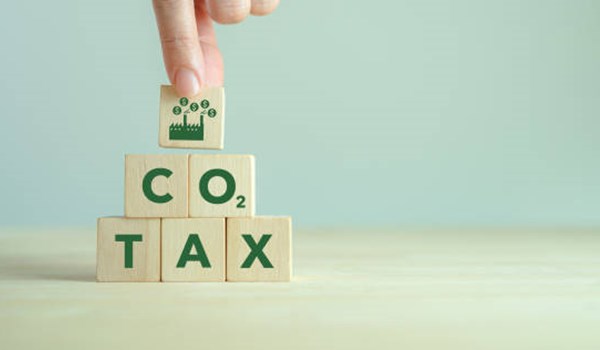Jurisdictions
Regions
Industry Sectors
04/12/23
COP28: China, EU face uphill battle to coordinate carbon policies

As published on: spglobal.com, Monday 4 December, 2023.
EU concerns about China’s climate ambitions and carbon market integrity clashed with China’s opposition to the EU’s carbon border adjustment mechanism (CBAM) Dec. 4 at the UN Climate Change Conference in Dubai.
The disagreements could skew negotiations on broader issues, such as the Global Stocktake (GST) evaluating countries’ collective progress to meet the Paris Agreement, negotiations associated with climate policies that have significant impacts on trade, and on development of higher integrity standards for carbon markets.
"We maintain the hope that China may impress the world and global communities by peaking carbon before 2030," Kurt Vandenberghe, Director-General for Climate Action of the European Commission, said at an event at China’s COP28 pavilion.
China has committed to peak its carbon emissions before 2030 and achieve carbon neutrality before 2060 under its Nationally Determined Contribution (NDC).
While the country has been under pressure to peak its emissions much earlier than 2030, the Chinese government has remained cautious on any NDC revision, arguing that economic development is also important for China as a developing country.
EU’s concerns
Vandenberghe said the EU hoped China’s domestic voluntary carbon market, the China Certified Emission Reduction (CCER) market, would maintain high integrity standards.
He noted a Chinese government official had said the CCER market would ensure additionality, which is "very, very encouraging".
"Additionality" requires carbon crediting schemes to issue credits only to projects that are not economically feasible without carbon market support.
China’s CCER scheme allows carbon credits to be generated from two types of renewable projects, solar thermal and offshore wind.
This has attracted criticism as some of the projects are profitable without revenues from carbon trading.
Further, without coordination with China’s domestic renewable energy certificate market, CCER eligibility may lead to double counting of climate mitigation outcomes.
"We must not forget that we need real and substantial emission reductions now. Therefore we argue that offsetting cannot be a substitute for these emission reduction processes," Vandenberghe said.
China’s compliance emission trading scheme or ETS allows CCERs to be used to offset up to 5% of a companies’ ETS-liable emissions, while the EU ETS has no such offsetting opportunity, he said.
"Where carbon credits are used, we believe strongly that there must be robust standards that ensure, again, effective reduction of emissions, through transparent and verified projects," he said.
Following Vandenberghe’s comments, Sun Zhen, Deputy Director-General of the Department of Climate Change with the Ministry of Ecology and Environment, reaffirmed China’s stance and pushed back on CBAM.
"CCER is not a tool for greenwashing," Sun said.
China would set its climate targets based on the country’s own pace of technological and economic development, he said.
China had built solid data, monitoring and verification measures, as well as a legislative framework that ensured high-level integrity of the country’s voluntary and compliance carbon markets, he said.
"Sorry to say that, but if you want to lead the world, you should stop your CBAM, that’s the simple message," he said.
CBAM is a carbon tax on emission-intensive commodities exported to the EU, currently covering cement, iron and steel, aluminum, fertilizer, electricity, and hydrogen sectors. The levy is to reflect the difference between EU ETS prices, and carbon costs in exporting countries.
The US, the UK and Australia are also planning to launch CBAM-style policies.
Between 2026 to 2040, China is expected to export 868.94 million mt of CBAM-liable commodities, 42% of which relate to iron and steel, 8% to cement and 6% aluminum, forecasts from S&P Global Commodity Insights showed.
Platts, part of S&P Global Commodity Insights, assessed EU Allowances for December 2023 at Eur72.49/mtCO2e ($78.89/mtCO2e) Dec. 1. This compared with China's compliance emissions price, which was valued at Yuan 71.84/mtCO2e ($10.10/mtCO2e) on Nov. 24, according to the Shanghai Environment and Energy Exchange.




